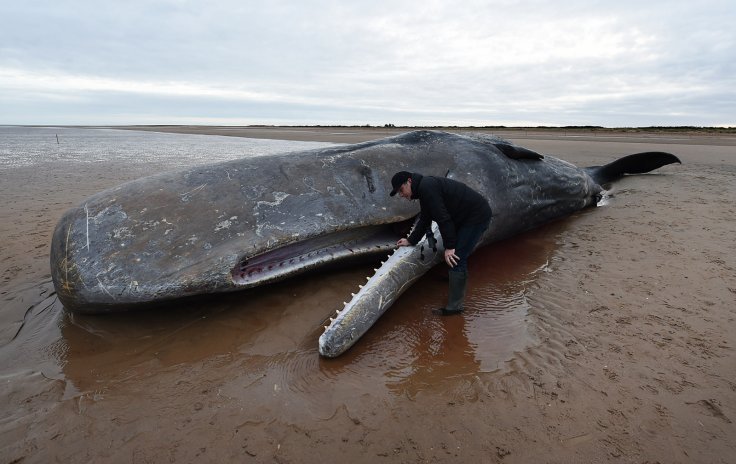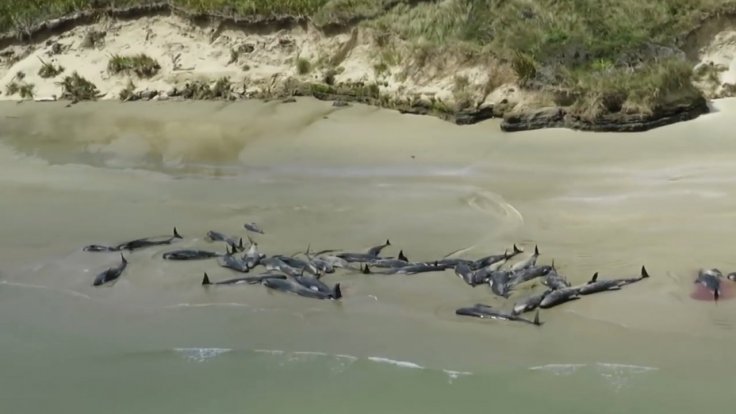While the World Wildlife Fund (WWF) is up in arms with long running list of the world's most endangered, vulnerable, and threatened species, over 350 scientists as well as conservationists from 40 countries have recently signed a letter urging immediate protection of whales, dolphins, and porpoises from extinction.
Before the era of commercial whaling, the world oceans were teaming with whales but the human invasion changed it all and whaling continues in Iceland, Japan, and the Faroe Islands. But this is not all.
The marine creatures have been facing massive threats due to pollution, loss of food sources, climate change, loss of habitat, toxic substances, being entangled in or ingesting plastic materials, sonar testing, net entanglement, trapped as incidental by-catch by the fishing industry, and ship strikes.

The scientists and environmentalists who signed the letter seeking a global action said that over half of all earth species are a matter of concern for conservation, with two on the brink of extinction. The letter pointed out that lack of action over the exploited world oceans and polluted seas means that many marine species will go extinct within our lifetime, and most probably the whales—which are considered endangered species according to WWF.
Mark Simmonds who is a visiting research fellow at the University of Bristol, UK, and also a marine scientist at Humane Society International, has coordinated the letter which has been signed by hundreds of environmental experts all over the world. The letter is part of a growing movement by scientists and experts to raise awareness of the threats faced by these ocean animals.
Simmonds said, "Let this be a historic moment when realizing that whales are in danger sparks a powerful wave of action from everyone."
The Threatened Marine Life
Cetaceans, the infraorder of marine mammals including whales, dolphins, and porpoises, are some of the most unique aquatic animals on earth and at the same time, these marine creatures are also some of the most endangered lot. Cetaceans have been divided in two groups—the first one includes Mysticeti or baleen whales, while the second group includes the Odontoceti or toothed whales, such as dolphins, porpoises, and whales like sperm whales.
Humans have been targeting cetaceans for food, oil, and other products for a long time. However, most large whales are no longer commercially hunted and many of them are recovering from past exploitation. But the serious conservation problem of recent times lies with several of the smaller cetacean species. The vaquita, Indus Susu, North Island Hector's dolphin, and Atlantic humpback dolphin are some of the most severely endangered species.
In recent years, more than hunting, the whales, and dolphins, as well as porpoises, are facing other threats—as they are dying indirectly due to ocean pollution, and fishing net. In 2017, baiji, a freshwater dolphin species—found only in the Yangtze River and some lakes in the Chinese region—was declared to be possibly extinct as researchers found no sign of the marine animal after an extensive search.

Moving Toward Extinction
By far the biggest threat for these marine animals is getting accidentally captured in fishing nets and around 300,000 whales, dolphins, and porpoises are killed every year. Scientists fear the extinction of the ocean species are high as chances of saving these intelligent social and inspiring creatures is shrinking. Pointing out the decline of North Atlantic right whale, whose number has been reduced to a few hundreds now, and the vaquita, the scientists fear that these two species will follow baiji down the path of extinction.
Experts from several countries such as the US, UK, Mexico, South Africa, and Brazil, have signed the letter, with a hope to avoid the dramatic decline of these species. They pointed out that the required political will is still missing. Dr. Susan Lieberman of the Wildlife Conservation Society, who also signed the letter said that "it is critical that governments develop, fund, and implement additional needed actions to better protect and save these iconic species - so they don't end going the way of the baiji."
As per the scientists, over half of the 90 living cetaceans are of conservation concern, and the on-going trend of acting "too little, too late" must end now. "We have a long way to go before we can be confident the fish we are eating is not causing bycatch (capture in fishing gear) of protected species like whales and dolphins," said Sarah Dolman of Whale and Dolphin Conservation in the UK.









